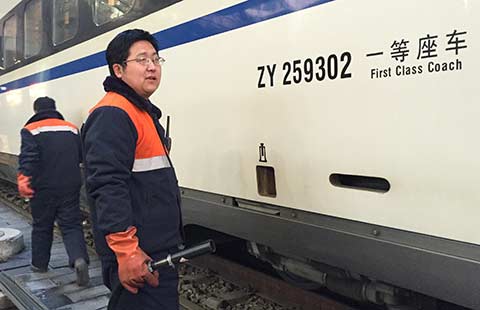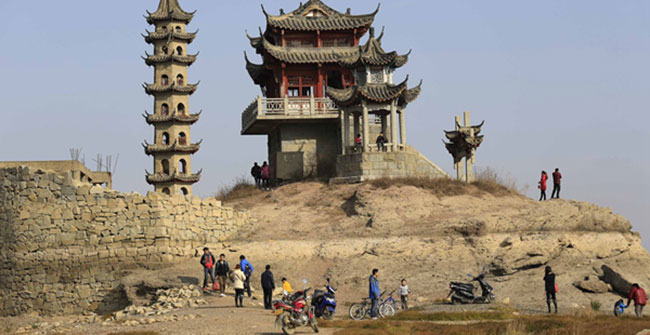Young riders hope to enjoy a new rein
By Peng Yining (China Daily) Updated: 2012-09-05 09:27Riders starting at a young age find it easier to gain deep understanding and interaction with horses, factors that are essential, he added.
Qiqimule attributes her competitive success to years of familiarity with horses. Even before she was able to ride, she was taught to groom the animals with a curry comb and "tack" her horse by strapping a saddle on it.
When she eats an apple, the girl remembers to save some for her favorite horse, Xiao Bao, or Little Baby. She loves the feeling of the chestnut gelding eating out of her hand and pressing his cheek against her forehead. "It's like he understands me. By following the subtle movements of my hands, he will respond, even before I pull on the rein," said Qiqimule.
Han Zhuangzhuang, 22, was introduced to the sport by his father at age 6. He said his passion for horses ran deep in his childhood. "Ever since I was a kid, I have loved riding horses," he said. "Even after all these years, the passion is growing stronger and the interaction between my horses and me is getting better," he said.
In 2010, Han took first place in China's national show jumping competition, becoming the youngest champion in the event's five-year-history.
"The success of these young riders might be the start of a journey for future Olympians," said Li Weiping.
High costs
However, the high cost keeps many families away, according to Hadatie. For casual riders a 30-minute introductory session costs about 500 yuan, he said. Taking show jumping as an example, he calculated that the cheapest competitive horse costs at least 150,000 yuan, and each rider needs two to three horses to compete successfully.
Buying a thoroughbred can cost millions of yuan, and riders also have to pay stabling fees and the cost of hiring a coach and stable hands.
"Most young riders at my club come from rich families," he said. "But even without money, talented riders still have the opportunity to be hired as professionals or sponsored by businesses."
Hadatie said that China's booming economy means a larger number of people can now afford to participate in expensive sports, a fact that is currently boosting his business.
"Moreover, the international communication that has accompanied economic growth has changed the image of equestrianism in the minds of Chinese people," he said. "It's not alien and not out of reach."
Hadatie coached Hua Tian, China's most promising young rider, when Hua was 5. With Chinese heritage on his father's side and a horsy background from his British mother, Hua competed in the Beijing Olympic Games, but fell when attempting a water barrier.
"In 1994, when I gave Hua his first riding class at a small club in Beijing, there were only a few Chinese members. In those days, most of the riders were foreign businesspeople or embassy employees, he said. "But now, it's different and most members are Chinese."
Contact the reporter at pengyining@chinadaily.com.cn
- HK chief executive condemns riot, supports police to restore order
- Hong Kong overnight riot injures at least 48 police officers
- Special troops to help keep China-Pakistan corridor safe
- New policies to aid Belt and Road business ventures
- Zika curbs to include mosquito mass extermination
- Xi visits old revolutionary base areas ahead of Spring Festival
- Nation in bid to ward off the Zika virus
- Li drops in for a chat at historic mosque
- Prison time reduced after 11 show they regret crimes
- PLA vows support, contributions to military reform







